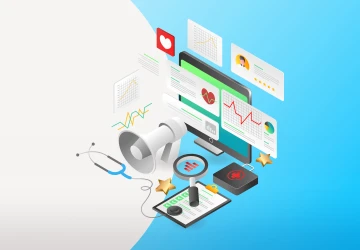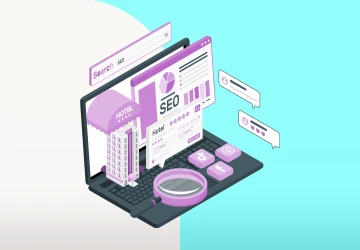Why Industrial Website Builder is Essential for Market Dominance
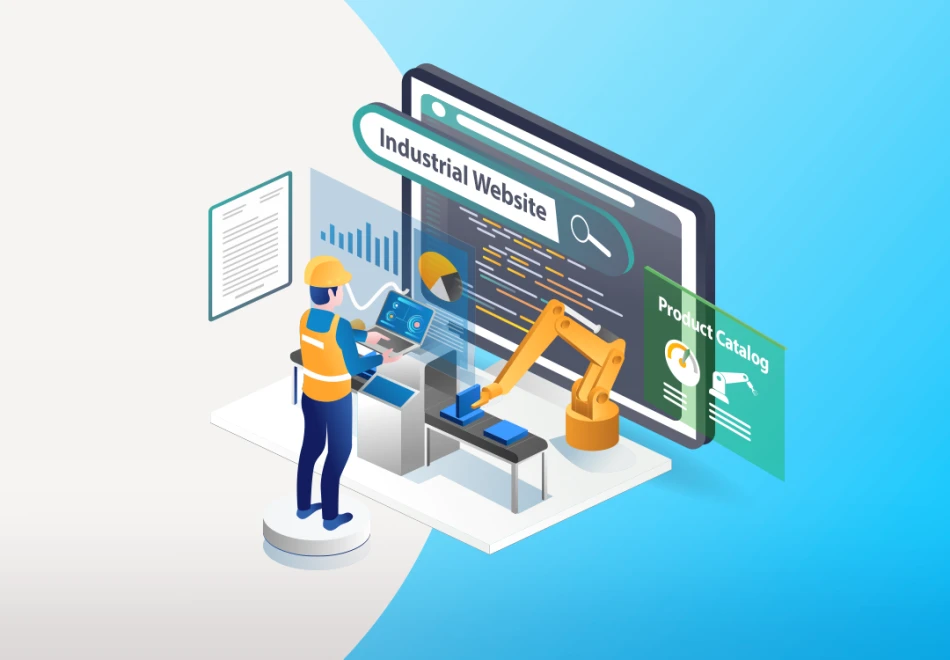
More and more businesses are realizing the power of industrial websites, especially as they transform their B2B websites into effective sales tools.
Features like digital catalogs not only enhance the user experience but also help drive conversions.
So, if you're looking to create or improve your own B2B website, this guide is for you.
I’ll walk you through the process of building a site that’s optimized for both user engagement and higher sales.
We’ll cover everything from incorporating digital catalogs to ensuring your site’s overall performance.
Why Is a Business Website Critical for Manufacturers?
A lot of people assume manufacturers don’t need websites.
They see it as just another expense that doesn’t bring much value.
But that idea usually stems from one simple thing—they don’t see how manufacturing fits into the online world.
But really, the better question is: Why not?
Think about it.
A website allows manufacturers to show what they do, explain their process, and build trust with potential clients.
It helps them tell their story, highlight their capabilities, and stay visible in an increasingly digital market.
Just like any other business today, manufacturers need an online presence. 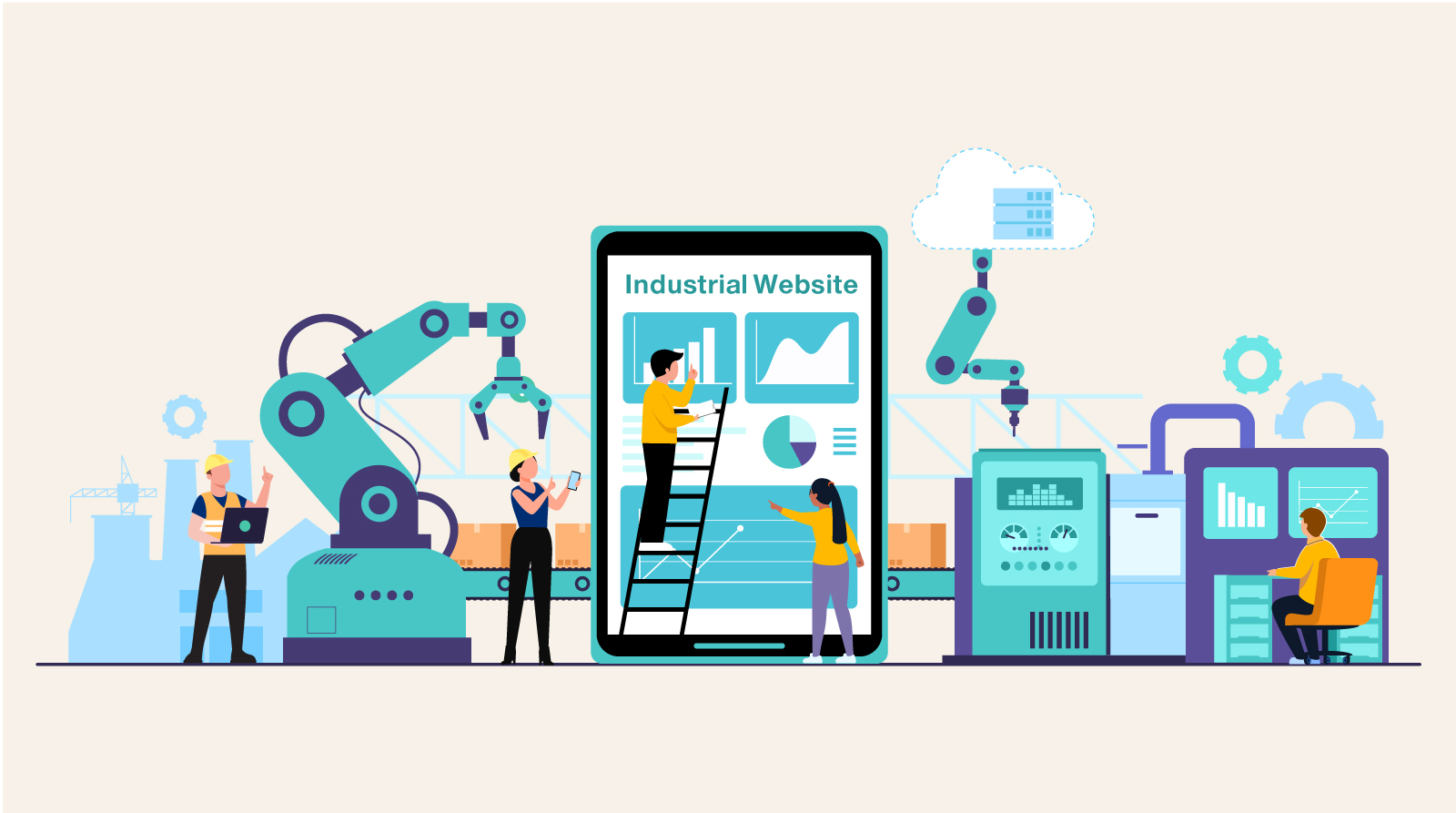
What Are the Key Benefits of a Website for Manufacturing Firms?
1. Establish Credibility and Highlight Expertise
A good website doesn’t just put you on the map—it tells people you mean business.
It shows what your company can do, the kind of quality you deliver, and that you’re keeping up with modern tech.
When someone checks out your site—whether it’s a potential client or partner—they’re not just looking at pretty pictures.
They’re picking up on how professional and trustworthy you are.
And that kind of first impression?
It goes a long way in starting solid, long-term relationships.
2. Expand Brand Visibility Globally
Back in the day, manufacturers had to rely on trade shows, cold calls, and sales reps to get the word out.
But now?
Your website does that job for you—24/7.
Think of it as your always-on sales rep.
It’s the first place potential customers go to learn about your products and services.
This is where you get to show off what makes your company special—your expertise, your quality, your edge.
And the best part?
You're no longer limited to just local buyers.
With the right setup, your website puts your business on the global stage.
Anyone, anywhere, can discover what you offer.
That’s a huge deal in today’s digital world.
3. Amplify Market Presence
In the past, getting noticed meant sending out salespeople or setting up booths at trade shows. It worked—but it was limited.
Fast forward to today, and things have changed.
The internet is your loudspeaker now—and your website is the volume knob.
A well-designed website lets you shout your brand’s message loud and clear.
With the right content and strong calls to action, you can grab attention, pull in new business, and keep your current customers engaged and loyal.
4. Drive Cost-Efficient Marketing and Sales
Selling used to be a hassle for manufacturers—lots of phone calls, printed catalogs, and long email chains just to close a deal.
But now, with a website builder, manufacturers have the tools to make things way easier and faster.
The game has changed from traditional sales methods to online sales.
Statista reports that 12.4% of manufacturing companies with more than 10 employees in the European Union are now making sales directly through their websites or mobile apps.
That’s a big shift, right?
With features like digital catalogs and e-commerce built into your site, manufacturers can now show off their products and let customers browse and buy on the spot.
No more waiting around for calls or meetings.
This doesn’t just make it easier for customers to buy right away—it also speeds up the sales process, opens up new ways to make money, and allows you to reach more people.
5. Align Messaging with Customer Needs
You need to make your customers feel like you truly understand what they’re looking for.
In today’s digital world, that means having a website that’s easy to find and that speaks the same language your customers use every day.
With a good industrial website builder like Alweb.ai, you can set up your website so it pops up when people search online for the products or services you offer.
Think of it like tuning into the same channel as your customers—when your site shows up during their Google searches, it makes things a lot easier for them.
They quickly see that you have the answers they need, and that builds trust right from the start.
And for businesses with B2B websites, this is especially important.
6. Foster Long-Term Customer Loyalty
Just like any good relationship, building customer loyalty takes time.
Your website is the perfect place to keep that connection going.
With a solid industrial website builder, you can create a space that’s more than just a place to sell—it’s a place to offer real value.
You can share blog posts, industry insights, and customer stories that resonate with your audience.
Instead of focusing only on selling, think of your website as an ongoing conversation with your customers.
When you offer useful content and solutions, you’re showing that you get what they need and that you’re here for the long haul.
This turns first-time buyers into repeat customers who trust your brand.
7. Enable 24/7 Lead Generation
For a long time, we suffered from the limitations of old-school sales methods.
Now, with the right industrial website builder, your website can work for you all day, every day—no breaks or commissions needed.
Your website can answer questions, process orders, and capture leads—even while you're catching some Zs.
When you set up your B2B websites with smart automation and cool features like interactive digital catalogs, visitors can turn into potential customers anytime, anywhere.
8. Strengthen Stakeholder Communication
Your website isn’t just a sales tool—it’s where everyone stays informed.
With a good website, your B2B websites can provide all the key info your customers, suppliers, and partners need: contact info, maps, business hours, and more.
Plus, when you display your certifications on your website, you're telling everyone that you meet the industry’s standards.
This builds trust and shows that you’re not just focused on making sales—you’re committed to providing excellent service and staying compliant with industry regulations.
9. Access Broader Geographic Markets
Nowadays, you don’t need offices around the world to find new customers—you just need a good industrial website builder.
With the right setup, your B2B websites can work like 24/7 online stores, ready to welcome anyone, anywhere.
The best part?
The internet doesn’t care about borders.
That means you can reach people across the globe just as easily as the ones in your city.
Translate your website into different languages, tailor your content to specific regions, and use smart digital catalogs to make your products feel local—no matter how far away your visitors are.
10. Stay Competitive in the Digital Era
Just because manufacturing deals with nuts, bolts, and heavy machines doesn’t mean your business should feel stuck in the past.
If anything, now’s the time to show the world how forward-thinking you are—and a good website helps you do just that.
Your website can be more than just a place to sell.
It’s your digital stage to show off your latest tech, talk about your green initiatives, and highlight how you're investing in your people.
Whether it's modern equipment or ongoing team training, this kind of content shows you're not just keeping up—you're ahead of the curve.
11. Reduce Long-Term Operational Costs
Let’s be real—marketing isn’t cheap.
Between printing brochures, booking trade show booths, and running ads, costs can pile up fast.
Think about it—your website can do the job of multiple tools.
It can show off your products, act as a digital brochure, generate leads, and even replace some of those pricey ad campaigns.
And because B2B websites can reach a much wider audience online, you’re getting more value with less overhead.
Add in smart features like digital catalogs, and suddenly, you’re saving on print costs while giving potential clients instant access to your offerings.
12. Educate Clients with Valuable Insights
Manufacturing isn't always straightforward—there are lots of complex products and processes that can be hard to understand.
With the right setup, your website goes beyond just selling.
It becomes a place where you share clear, helpful content—like how-tos, simple explainers, or easy-to-read blog posts—that breaks down what you do and why it matters.
This way, your customers feel more confident and informed when they're making decisions.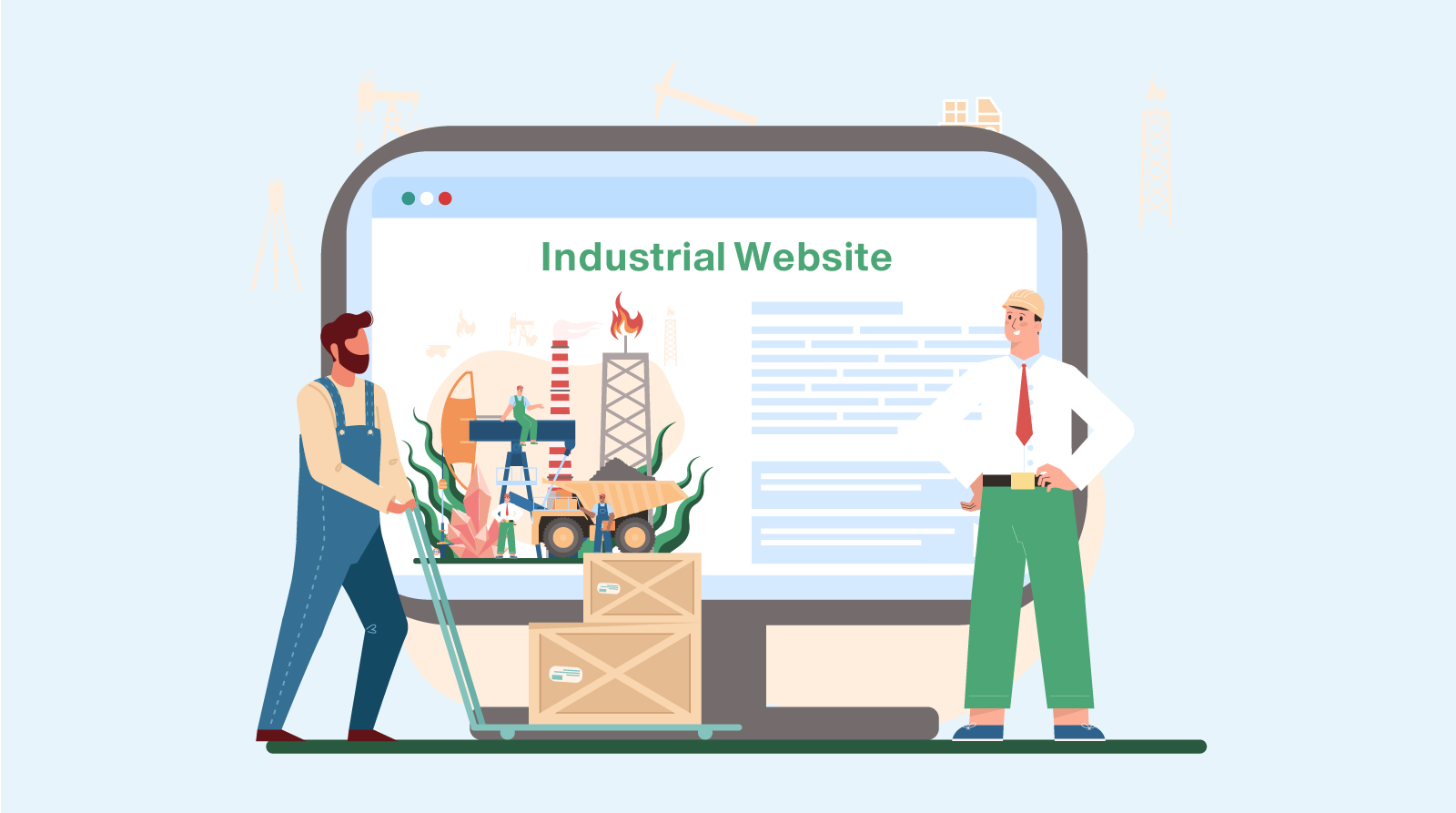
How to Maximize Manufacturing Business Growth with a Website?
1. Adopt a User-Centric Design
No one can bear a clunky, confusing website—especially when they’re trying to make quick decisions.
That’s why adopting a user-centric design is key to growing your manufacturing business online.
Start by making it super easy for visitors to find what they need.
Clear navigation, well-organized product info, and a clean layout go a long way.
Your website should feel effortless to use.
Also, don’t overlook the basics: Make sure your pages load fast and look great on every device, whether it's a phone, tablet, or desktop.
People won’t wait around for a slow site or try to zoom in on tiny text.
2. Highlight Products/Services Strategically
Let’s be honest—browsing websites can sometimes be overwhelming, especially when you're trying to make a purchasing decision.
So, you need to showcase your products and services in a way that’s clear, engaging, and easy to understand.
Start with visuals! High-quality images and videos can do wonders to grab attention and show off your products.
A great picture or a short video can give customers a real sense of what they’re buying, helping them visualize it in action.
People like to see exactly what they’re getting before committing.
But it’s not just about looks—ensure you include detailed descriptions, too.
Talk about the features, benefits, and what makes your products stand out.
This helps your customers understand exactly what they’re buying and why it’s a great choice.
Don’t forget about sharing testimonials and success stories.
When potential buyers see that others have had positive experiences, they’re more likely to trust you and feel confident in their decision.
3. Optimize for Search Engines (SEO)
SEO stands for Search Engine Optimization.
In simple terms, it means making your website easier for search engines like Google to find and love so more people can discover you—without paying for ads.
Here’s how you can get started:
Keywords: Figure out the words and phrases your customers use when searching for products like yours. Sprinkle these keywords throughout your content so search engines know what your site is all about.
On-Page Elements: Take a look at your headings, URLs, meta tags, and page content. Tidy these up and include your keywords naturally. It helps search engines understand your pages better.
Fresh Content: Keep your site lively by regularly adding new and useful content, such as blog posts or product updates. Fresh content tells search engines that your website is active and worth showing off.
Backlinks: Work on getting links from other reliable websites pointing back to yours. High-quality backlinks act like votes of confidence, showing search engines that your site is trustworthy.
4. Engage Audiences with Targeted Content
Content marketing is a great way to grab your audience's attention and keep them interested in what you have to offer.
With a solid content strategy, your website can become a go-to resource for your industry.
Start by posting regular blog entries on topics that matter to your visitors.
This not only boosts your site's freshness but also helps establish your expertise.
Next, consider creating in-depth resources—like guides or whitepapers—that visitors can download in exchange for their contact information.
This not only offers value but also helps you build a list of potential leads.
Don't forget the power of video content and live webinars.
They can be a fantastic way to demonstrate your products in action and answer customer questions in real time.
5. Integrate Social Media Platforms
It’s not really up to us anymore—your audience expects to see you on social media.
The good news?
It’s easy to link your website with platforms like LinkedIn, Facebook, or Instagram and stay visible wherever your customers are hanging out.
For B2B websites, social media isn’t just about scrolling and liking.
It’s a smart way to share what you’re doing—like blog posts, product updates, and helpful tips—and bring more people back to your site.
You can even show off your digital catalogs, share customer success stories, or post behind-the-scenes moments to keep things interesting.
And here’s the key part: don’t just post—interact.
Reply to comments, answer DMs, and join conversations.
That back-and-forth builds real trust and makes people feel like they’re dealing with a company that gets it.
Want to reach an even bigger audience?
Run a few targeted ads.
They help you connect with the exact people you want without blowing your whole budget.
6. Deploy E-Commerce Functionality
Selling today isn’t just about cold calls or trade shows.
These days, customers want to browse, compare, and buy online.
And your B2B website can do so much more than just list your products—it can be a full-on digital store that's open 24/7.
For example, let’s say a supplier needs specific machine parts.
Instead of calling your office or waiting for a sales rep, they visit your site, scroll through your digital catalogs, find what they need, add the parts to their cart, and get helpful suggestions for related items they didn’t even know they needed.
All of this happens seamlessly—maybe even before your office hours begin.
Add in product reviews and ratings from other customers, and now you’re not just making a sale—you’re building trust.
7. Offer Responsive Customer Support
Today, customer service can make or break your business.
It's not just about selling products—it's about being there when your customers need you and doing it fast.
One easy way to do this is by adding a live chat feature to your site.
This gives customers the chance to get answers right away, without waiting for an email or a phone call.
Instant help?
That’s what keeps people happy.
Another great tool is a solid FAQ section.
If you can answer common questions ahead of time, your visitors won’t need to reach out—they’ll find what they need quickly, and that makes their experience smoother.
And if something more complex comes up, a support ticketing system is a must.
It helps you keep track of all the questions and ensures nothing slips through the cracks.
8. Leverage Analytics for Growth
In the digital world, data is like a map that helps you understand your audience and make your website better.
By tracking key information, you can see how people are interacting with your site, what’s working well, and where you can improve.
Tools like Google Analytics are useful for keeping track of important data.
You can see who’s visiting, what pages they’re checking out, and where they’re coming from.
This gives you a clear idea of what’s catching people’s attention and what might need a little tweaking.
Another great tool is Hotjar, which uses heat maps to show where people are clicking, scrolling, and spending time on your site.
This lets you see exactly what parts of your website are standing out and what needs more focus.
Don’t be afraid to experiment!
Try changing things up—whether it’s your headlines or button placements—and see what your visitors respond to best.
9. Target Local Markets with SEO
Local markets are a great place to focus your SEO efforts, especially if you're looking to attract relevant, nearby customers.
Optimizing your B2B website for local search helps ensure that your business shows up when people in your area search for products or services like yours.
Start with creating a solid Google Business Profile for your manufacturing business.
This ensures you appear in local search results, especially when customers are searching for businesses near them.
Also, be sure to include local keywords in your website content to help search engines connect you with the right audience.
One more tip: Encourage satisfied customers to leave positive reviews.
Not only does this enhance your credibility, but it also helps your site rank higher in local searches, making it easier for nearby prospects to find you.
10. Maintain Regular Updates
Everything in the world changes, and your website should be no different.
Keeping it fresh is key to staying ahead and ensuring your visitors always have a great experience.
Regular updates keep your content current, which not only grabs customers' attention but also makes search engines happy.
It’s also important that your manufacturing website runs smoothly.
No one likes a site that’s slow or full of broken links and glitches.
Routine checks and fixes ensure that everything works perfectly so your customers never hit a snag.
And, of course, security matters.
In our digital age, a secure website is a must-have.
Strong security measures protect your business and customer data, showing that you’re committed to keeping things safe.
11. Benchmark Against Competitors
It might sound a bit strange, but your competitors are like hidden teachers.
Picture yourself in a race—you don’t want to copy everything your competitor is doing, but by watching them, you can pick up some tricks to improve your own game.
The same goes for their websites.
When you check out what they’re doing, you can spot fresh ideas, new trends, and strategies that might give you the edge.
For example, you might see that one competitor has a product page with interactive digital catalogs or glowing customer reviews that grab attention.
That could be a great idea to add to your own B2B website, making it more engaging for visitors.
Or maybe another competitor uses fun animations to explain tricky manufacturing processes—something you could try to make your website stand out more.
If you regularly check out your competitors’ sites, comparing things like page speed and user experience, you can figure out where your site might need improvement.
The goal isn’t to copy them; it’s to take what you learn and use it to make your site even better.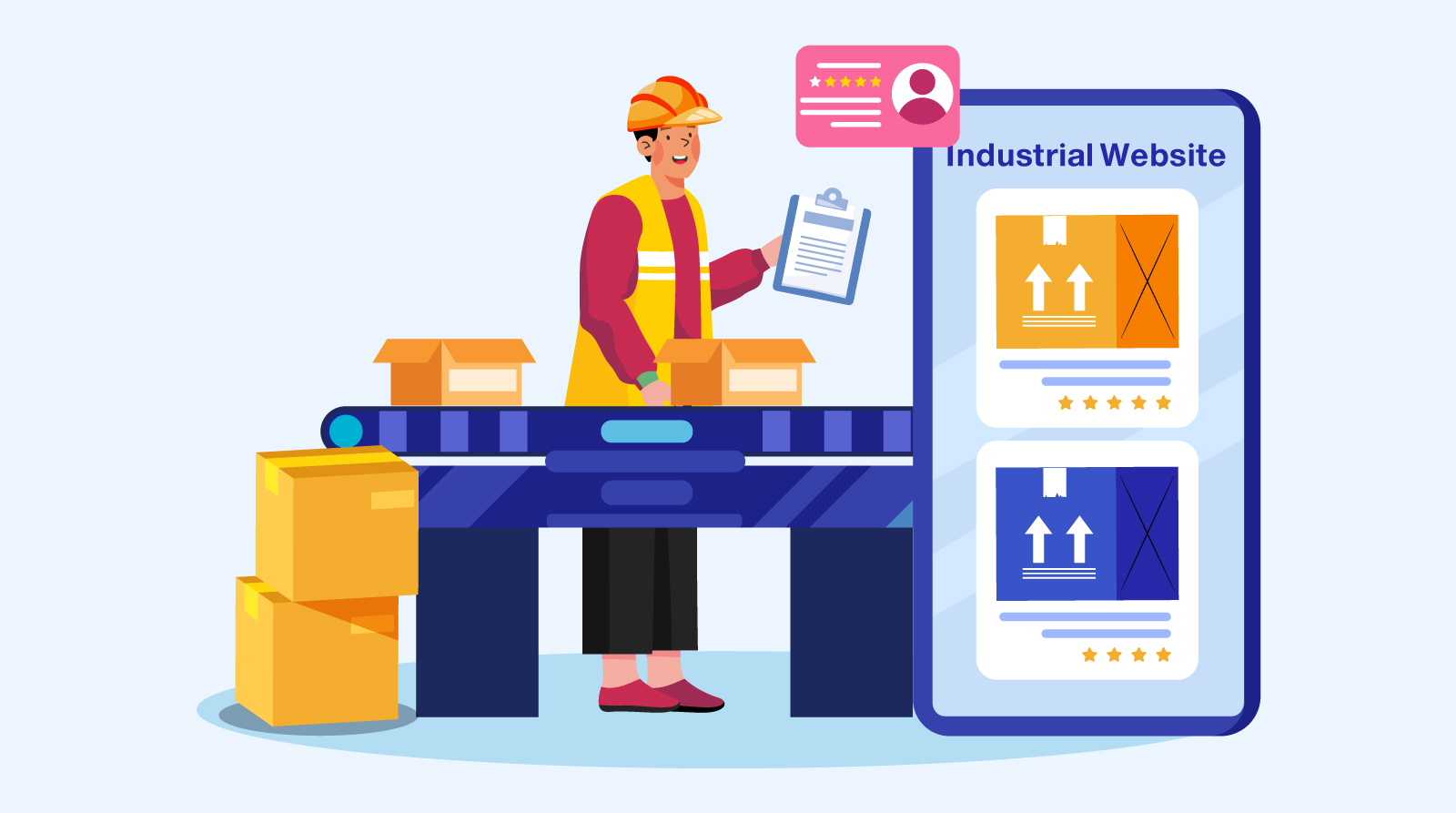
What Are the Things to Add to Your Manufacturing Websites?
Of course, your website can have a lot of key elements, but it's important to focus on the ones that serve your customers.
Here’s what you should consider adding to make your manufacturing website truly effective:
Your Business Recognition: Show off your brand with your company logo, mission, awards, or certifications. This builds instant trust and tells visitors who you are.
Products You Are Manufacturing: Showcase your products with detailed descriptions and high-quality images. This helps visitors quickly understand what you offer and why your products stand out.
Clear Navigation: Ensure your site has a simple, easy-to-follow menu so users can find what they need without any hassle. Organize your sections clearly—like “Products,” “About Us,” and “Contact.”
Contact Form: Provide an easy way for potential customers to get in touch. A contact form lets them ask questions or request more details without any fuss.
Get a Quote: Offer a simple way for visitors to request pricing information. This can help kickstart conversations and move prospects closer to making a decision.
Product Catalogs: Include interactive or downloadable product catalogs so potential clients can explore your full range of offerings in depth, even offline.
Online Product Purchase Options: If you sell directly, set up an e-commerce section where customers can easily browse, add items to a cart, and check out securely.
FAQs
Why Do Companies Need Websites?
Companies need websites to establish an online presence, reach a wider audience, and provide information about their products or services.
What Industry Needs a Website the Most?
Industries like retail, manufacturing, and services rely heavily on websites to connect with customers, showcase products, and facilitate transactions.
Why Do Companies Have Their Website?
Companies have websites to build brand credibility, offer customer support, and showcase their products, driving sales and engagement.
What Are the Advantages of Having a Company Website?
A company website increases visibility, enhances customer trust, provides marketing opportunities, and can lead to higher sales and growth.
Final Thoughts
Now that we've covered the essentials of building a powerful B2B website using an industrial website builder, remember that success lies in consistently optimizing and evolving your site.
My advice?
Regularly analyze your site’s performance and be open to adapting to new trends.
Don’t let your website become stagnant.
If you’re ready to take your B2B website to the next level, feel free to reach out for personalized guidance on optimizing your site for maximum results.


